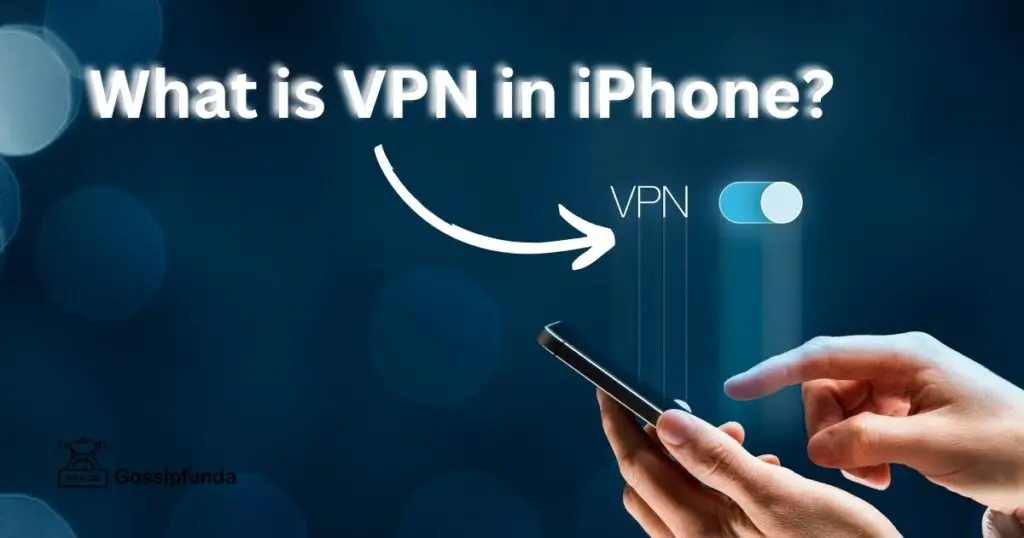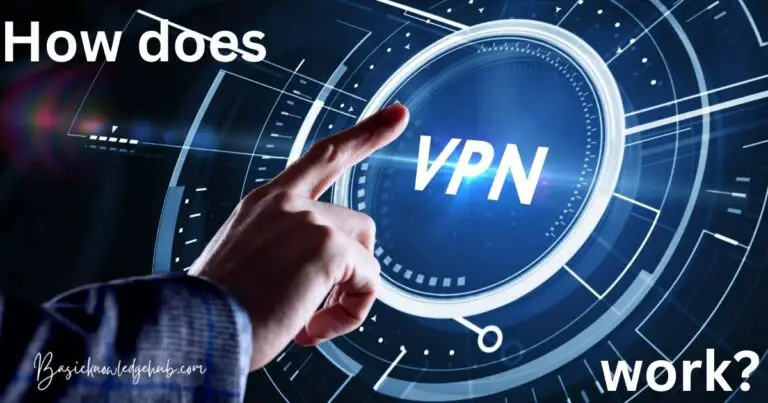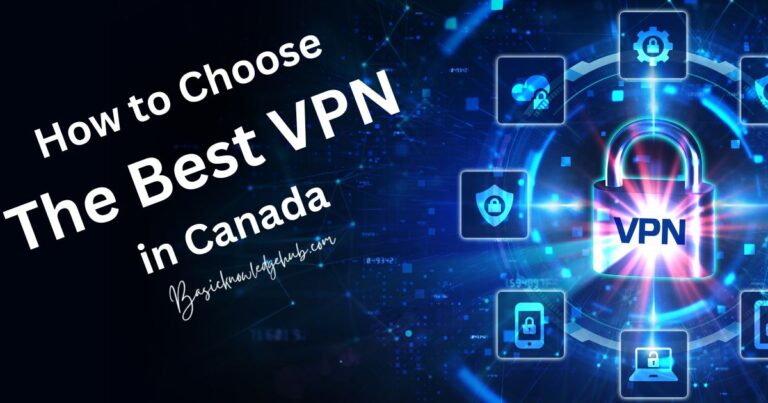VPN in iPhone: What is it, How It Works and Why You Need It
A Virtual Private Network (VPN) keeps your internet activity private and secure. It encrypts your data and hides your location by routing your connection through a VPN server. This stops third parties, such as hackers, advertisers, and government agencies, from tracking your activity. Additionally, it allows access to content restricted in your region, such as streaming services that are only available in certain countries.
VPNs are easy to set up on iPhones. Simply download an app from the App Store and log in to your account. Select a server and connect to the VPN. In short, a VPN in your iPhone protects your online activity and lets you access restricted content. Let’s learn more about it.

Why Use a VPN in iPhone?
A VPN encrypts your internet connection, protecting your data from hackers, advertisers, and government agencies, So that data stays secure. It also allows you to access content blocked or restricted in your area, such as streaming services. It makes your internet activity private and secure, protecting your personal and sensitive information. Additionally, using a VPN can also improve your browsing speed, by connecting to a server that is closest to your physical location.
How VPN Works on iPhone?
When you connect to a VPN, your iPhone establishes a secure connection with a VPN server. The VPN then encrypts your internet connection, routing it through the server before reaching its destination. This changes your IP address, making it appear as though you are located in a different place, hiding your online activity from anyone monitoring your internet connection. This ensures your privacy and security while you access the internet on your iPhone.
Different Methods for Setting up a VPN on iPhone
- App Store: Most VPN providers offer an app that can be downloaded from the App Store. After downloading, log in to your account and select a server to connect.
- Network Settings: You can also manually configure a VPN by going to the iPhone’s settings, selecting “VPN,” and inputting server information.
- Third-Party Apps: Some VPNs can be set up via third-party apps, such as Surfshark, and OpenVPN Connect, that you can download from the App Store.
- Configuration Profile: Some VPN providers offer a configuration profile that can be downloaded and installed on your iPhone. This sets up the VPN automatically.
Choose the method that best suits your needs and ensures your privacy and security while accessing the internet on your iPhone.
Benefits
- Protection from hackers and surveillance.
- Unblock content restricted in your region.
- Keep personal and sensitive data private.
- Improved browsing speed by connecting to the nearest server.
- Protection of your personal data when using Public Wi-Fi.
- Avoid online censorship and geo-restrictions.
Using a VPN offers a range of benefits, ensuring your online privacy and security and providing access to content that may otherwise be restricted in your area.
Disadvantages
- Decreased internet speed.
- Additional cost if using a paid VPN service.
- Some websites may block VPNs.
- Compatibility issues with some apps.
- Possibility of VPN malfunction, disrupting internet connectivity.
- Some VPNs may log your browsing data.
- Some VPNs may not have proper legal jurisdiction, making their usage illegal.
While VPNs offer several advantages, there are also some downsides to consider. Using a VPN can slow down your internet speed, and some websites may block VPN traffic. Some apps may also not be compatible with a VPN. Additionally, if you choose a VPN service that logs your browsing data or is not legally operated in your jurisdiction, you may face legal issues.
Methods to Fix VPN Not Working on iPhone
- Check your VPN subscription and make sure it’s still active.
- Check your internet connection and ensure it’s stable.
- Make sure the VPN server you’re connecting to is available and not blocked by your ISP.
- Restart your iPhone, the VPN app, and your router.
- Check your iPhone’s settings to make sure VPN is enabled.
- Remove and reinstall the VPN app.
- Try to connect to a different server or change the protocol.
- Try using a different VPN provider.
- Contact your VPN provider’s support for further assistance.
VPNs can sometimes stop working, this could be caused by issues with your subscription, internet connection, server availability, or software. The above steps could help troubleshoot and fix the issue, if the problem persists it is best to contact your VPN provider’s support.
Methods to Optimize VPN Settings in iPhone
- Use the Automatic Configuration option when possible.
- Use a server closest to your location.
- Use a protocol that prioritizes speed over security if needed.
- Disable the Kill Switch feature if it is causing connectivity issues.
- Disable the Automatic Reconnect feature if it is causing issues.
- Experiment with different encryption levels, to find the best balance of security and speed.
- Use the split-tunneling feature to only route the necessary traffic through the VPN.
- Disable the Firewall feature if it is causing issues.
- Keep the VPN app and your iPhone’s software updated for optimal performance.
To optimize VPN settings on iPhone, it is recommended to use the Automatic Configuration option, use a server closest to your location, and use a protocol that prioritizes speed over security if needed. Additionally, experimenting with different settings such as disabling the kill switch, enabling split-tunneling, and disabling the firewall feature can also help to optimize the performance of the VPN on your iPhone.
Is VPN in iPhone Legit?
- Yes, many reputable companies offer VPN services for iPhones.
- However, some VPNs may not be legal in certain countries.
- Make sure to choose a VPN provider with a good reputation and transparency policies.
- Be aware of free VPN providers, they may have hidden motives such as data collection.
- Always check the terms and conditions of the VPN service before signing up.
Using a VPN on an iPhone is generally a legitimate method to enhance the security and privacy of internet usage. However, it’s essential to research and chooses a reputable VPN provider and checks their legal jurisdiction and transparency policies. Avoid using free VPN providers, as they may not have the user’s best interest in mind and potentially collect data without the user’s knowledge. Always read the terms and conditions of a VPN service before signing up.
Conclusion
VPNs in iPhone provide privacy and security for internet usage by encrypting data and hiding location. Setting up a VPN is easy and can be done through the App Store or by manually configuring in Network settings. ExpressVPN is a recommended service due to its popularity and ease of use. Benefits include protection from hackers and restricted content access, but disadvantages include slowed internet speed and issues with compatibility. Troubleshoot by checking the internet connection, server availability, and subscription status. Optimize settings by using Automatic Configuration, closest server, and split-tunneling feature.

